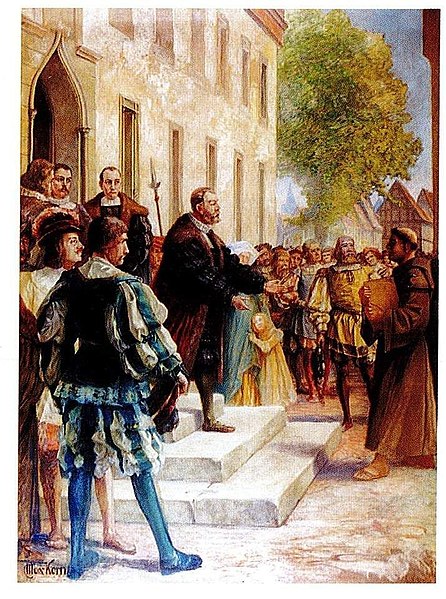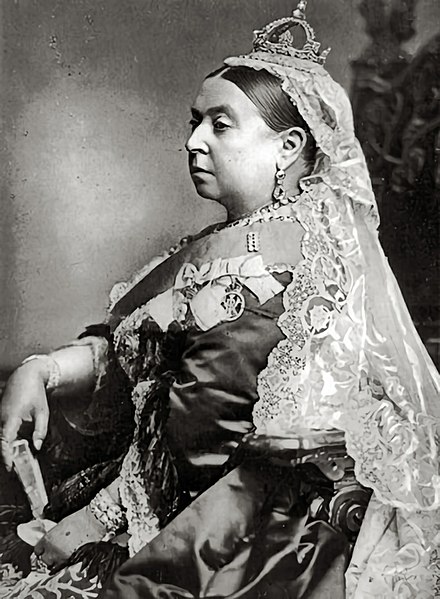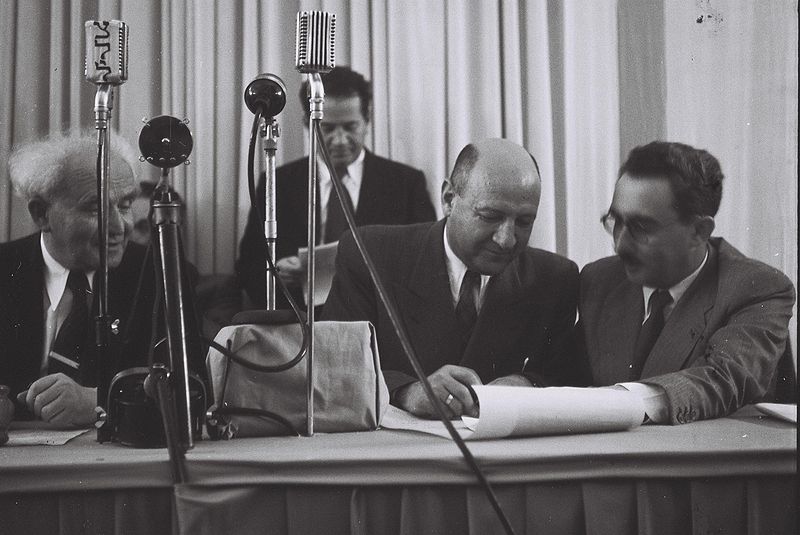This article provides a detailed exploration of notable historical events that took place on January 22nd, highlighting their significance and the role they played in shaping various aspects of global history, culture, and technological advancement.
Spanning from the early 20th century to the dawn of the 21st century, the piece delves into milestones such as the creation of the Central Intelligence Agency in 1946, which redefined international intelligence operations, to the launch of the groundbreaking Apollo 5 mission in 1968, marking a crucial step in the United States’ lunar exploration efforts.
It also covers significant socio-political events, including the signing of the Élysée Treaty in 1963, fostering a historic reconciliation between France and Germany, and the introduction of the Boeing 747 in 1970, which revolutionized commercial aviation.
Through these events, the article offers readers an insightful look into pivotal moments that have contributed to the world’s geopolitical landscape, technological innovations, and societal transformations.
January 22nd Events in History
1521 – Emperor Charles V opens the Diet of Worms in Worms, Germany, which addresses Martin Luther and the Protestant Reformation
The Diet of Worms was an imperial council that was convened to address Martin Luther and the Protestant Reformation. It was presided over by Emperor Charles V. Martin Luther was summoned to the Diet to renounce or reaffirm his views on the Catholic Church.
Also Read: January 21 – On this Day in History
When Luther appeared before the assembly on April 17, he refused to recant his writings. The Diet of Worms led to the Edict of Worms, declaring Luther an outlaw and a heretic and banning his literature. This event was crucial in the Protestant Reformation, which led to the division of Christianity into Protestantism and Catholicism.

1771 – Spain cedes Port Egmont in the Falkland Islands to the United Kingdom
This event is part of the complex history of the Falkland Islands, which involved various claims and disputes primarily between Britain and Spain (and later Argentina). In 1765, Britain had established a settlement at Port Egmont on the islands, unaware that the French had also made a claim. Spain, which had acquired the French claim, contested British presence.
Also Read: January 23rd Events in History
Tensions escalated until 1770 when Spanish forces temporarily expelled the British settlers. However, diplomatic negotiations led to Spain agreeing to restore Port Egmont to Britain in 1771, though without relinquishing its claim to sovereignty over the islands. The dispute over the Falklands would continue into the modern era.
1824 – The Ashantis defeat British forces in the Gold Coast (now Ghana)
The Ashanti Empire, located in what is now Ghana, was one of the few African states that effectively resisted European colonization in the 19th century. In 1824, in one of the Anglo-Ashanti Wars, the Ashanti forces defeated British troops led by Governor Charles MacCarthy, killing him and most of his men.
This battle significantly checked British ambitions in the region for a time and demonstrated the military prowess of the Ashanti Empire. However, continued conflicts with the British eventually led to the empire’s decline and incorporation into the British Gold Coast colony.
1840 – British colonists reach New Zealand. The New Zealand Company announces that its first settlement (Wellington) has been established
The New Zealand Company was a British company that played a significant role in the colonization of New Zealand. It aimed to purchase land from the indigenous Maori people and sell it to British settlers, and to establish a British-style legal and political system in New Zealand.
The company’s first settlers arrived in Petone, which became part of the larger settlement of Wellington, named after the Duke of Wellington. This marked the beginning of systematic British colonization in New Zealand, which would have profound effects on its indigenous Maori population and lead to the Treaty of Waitangi in 1840.
1879 – The Battle of Isandlwana during the Anglo-Zulu War results in a significant victory for the Zulus against British forces
The Battle of Isandlwana was a stunning defeat for the British Empire at the hands of the Zulu Kingdom in South Africa. It took place on January 22, 1879, during the early stages of the Anglo-Zulu War. The British, underestimating the Zulu warriors, suffered one of the worst defeats in their colonial history.
The Zulu forces, armed mainly with spears and shields, overwhelmed the British troops and their native allies, using superior tactics and their knowledge of the local terrain. The battle shook the British military and public back home, leading to a significant escalation of the war, which ultimately ended in the defeat of the Zulu Kingdom.

1901 – Edward VII is proclaimed King after the death of his mother, Queen Victoria
Edward VII became King of the United Kingdom and the British Dominions, and Emperor of India, following the death of his mother, Queen Victoria, on January 22, 1901. Queen Victoria had reigned for 63 years, marking the Victorian Era, a period of industrial, cultural, political, scientific, and military change within the United Kingdom, and was marked by a great expansion of the British Empire.
Edward VII’s accession initiated the Edwardian Era, which was characterized by significant changes in politics and society in the UK and Europe. His reign saw the modernization of the British Home Fleet and the reformation of the British Army in response to the Boer War, setting the stage for Britain’s involvement in World War I.
1905 – The Bloody Sunday massacre in Saint Petersburg, marking the beginning of the 1905 revolution in Russia
Bloody Sunday was a pivotal event in Russian history that occurred when unarmed demonstrators led by Father Georgy Gapon marched to the Winter Palace in Saint Petersburg to present a petition to Tsar Nicholas II.
They sought reforms and better working conditions. However, the march turned tragic when Imperial soldiers opened fire on the crowd, causing hundreds of deaths and injuries.
The massacre significantly weakened the Tsar’s image and sparked the 1905 Revolution, an uprising that forced Nicholas II to issue the October Manifesto, which granted the creation of a legislative duma (assembly), marking the beginning of constitutional governance in Russia.
1917 – President Woodrow Wilson of the United States calls for “peace without victory” in World War I
In a notable address to the United States Senate, President Woodrow Wilson outlined his vision for the end of World War I, advocating for a “peace without victory.” Wilson argued that the peace terms should not punish the defeated nations excessively, believing that harsh penalties could lead to future resentment and conflict.
His vision laid the groundwork for the League of Nations, an international organization aimed at ensuring peace and cooperation among countries. Wilson’s ideas, however, faced resistance from other Allied leaders, who sought to impose heavy reparations and territorial losses on the Central Powers, especially Germany.
1924 – Ramsay MacDonald becomes the first Labour Prime Minister of the United Kingdom
amsay MacDonald took office as the Prime Minister of the UK, leading the country’s first Labour government. His ascension marked a significant moment in British politics, as it was the first time a political party representing the working class came to power.
Although his initial government lasted only about ten months due to a lack of a clear majority in Parliament and opposition from other parties, MacDonald’s tenure as Prime Minister helped to establish the Labour Party as a credible alternative to the Conservative and Liberal parties.
His government tackled issues such as housing, education, and unemployment, laying the foundation for the future role of the Labour Party in British politics.
1941 – British and Commonwealth troops capture Tobruk from Italian forces during World War II
The Siege of Tobruk was a critical battle in the North African Campaign of World War II. British, Australian, and other Commonwealth forces successfully captured Tobruk from the Italians in January 1941, marking a significant victory. Tobruk’s capture provided the Allies with a valuable naval base and control over a key supply route.
The victory at Tobruk was a boost to Allied morale and marked the beginning of the end for Axis ambitions in North Africa. However, Tobruk would change hands several times before the conclusion of the North African Campaign, demonstrating its strategic importance to both sides in the conflict.
1946 – Creation of the Central Intelligence Agency (CIA), when U.S. President Harry S. Truman signs the National Intelligence Authority Act
On January 22, 1973, the U.S. Supreme Court issued its landmark decision in Roe v. Wade, effectively legalizing abortion across the United States.
The Court ruled that the right to privacy under the Due Process Clause of the 14th Amendment extended to a woman’s decision to have an abortion, but this right must be balanced against the state’s interests in regulating abortions: protecting women’s health and protecting the potentiality of human life.
The decision set off a decades-long national debate and movement, with various states attempting to enact laws to either restrict or protect access to abortion services, reflecting deep divisions in American society on the issue.

1957 – Israel withdraws from the Sinai Peninsula
This withdrawal was a result of the Suez Crisis of 1956, a military and political confrontation involving Egypt, Israel, France, and the United Kingdom. The crisis began when Egyptian President Gamal Abdel Nasser nationalized the Suez Canal, leading to a joint Israeli-British-French military intervention aimed at regaining Western control of the canal and removing Nasser from power.
Under pressure from the United States and the Soviet Union, the invading forces withdrew, and Israel eventually pulled back from the Sinai Peninsula it had occupied. The event significantly altered the geopolitical landscape of the Middle East and the global balance of power, emphasizing the growing influence of the United States and the Soviet Union in the region.
1963 – France and West Germany sign the Élysée Treaty, a treaty of friendship
The signing of the Élysée Treaty by French President Charles de Gaulle and West German Chancellor Konrad Adenauer symbolized the reconciliation between France and Germany following centuries of rivalry and conflict, most recently in World War II.
This treaty laid the foundation for closer diplomatic, economic, and military cooperation between the two nations, ultimately contributing to the formation and strengthening of the European Union.
The Élysée Treaty is often cited as a pivotal moment in European integration, demonstrating how former adversaries can overcome historical grievances to build a peaceful and cooperative future.
1968 – Apollo 5 lifts off carrying the first Lunar module into space
Apollo 5 was an uncrewed NASA mission that tested the Lunar Module (LM), a critical component of the Apollo program designed to land astronauts on the Moon and return them to orbit.
The successful launch and tests of the LM’s ascent and descent engines in space were crucial in demonstrating the module’s readiness for manned missions.
This mission was a significant step forward in the United States’ efforts to achieve President John F. Kennedy’s goal of landing a man on the Moon before the end of the 1960s, setting the stage for the historic Apollo 11 moon landing in 1969.
1970 – The Boeing 747, the world’s first “jumbo jet”, enters commercial service for Pan American Airways with its maiden voyage from New York to London
The introduction of the Boeing 747 revolutionized air travel by significantly increasing the aircraft’s capacity, enabling airlines to transport more passengers and cargo than ever before. Its design, featuring a distinctive hump and four-engine layout, became iconic.
The 747 made international travel more accessible to the general public, contributing to the globalization of the world economy. As the world’s first wide-body airliner, the 747’s successful introduction marked a new era in aviation, showcasing advancements in aerospace engineering and technology.
1973 – The Supreme Court of the United States delivers its decision in Roe v. Wade, legalizing elective abortion in all fifty states
On January 22, 1973, the U.S. Supreme Court issued its landmark decision in Roe v. Wade, effectively legalizing abortion across the United States.
The Court ruled that the right to privacy under the Due Process Clause of the 14th Amendment extended to a woman’s decision to have an abortion, but this right must be balanced against the state’s interests in regulating abortions: protecting women’s health and protecting the potentiality of human life.
The decision set off a decades-long national debate and movement, with various states attempting to enact laws to either restrict or protect access to abortion services, reflecting deep divisions in American society on the issue.
1984 – The Apple Macintosh, the first consumer computer to popularize the mouse and the graphical user interface, is announced to the press
The introduction of the Apple Macintosh revolutionized the personal computing industry by offering users a graphical user interface (GUI), built-in screen, and mouse. This was a significant departure from the text-based commands that were standard at the time.
Launched with a now-iconic commercial during Super Bowl XVIII, the Macintosh aimed to make computing accessible to a wider audience, emphasizing ease of use, creativity, and productivity. The Macintosh’s introduction marked a pivotal moment in computing, influencing the development of future personal computers and the technology industry at large.
1992 – Rebel forces occupy Zaire’s national radio station in Kinshasa and broadcast a demand for the government’s resignation
This event was part of the political turmoil and conflict in Zaire (now the Democratic Republic of the Congo) during the early 1990s. Rebel groups opposing the long-standing dictatorship of Mobutu Sese Seko seized control of the national radio station, using it as a platform to voice their demands for the government’s resignation and the end of Mobutu’s rule.
This act underscored the significant unrest and dissatisfaction with Mobutu’s governance, characterized by corruption, economic mismanagement, and human rights abuses. The event was a precursor to the First Congo War, which ultimately led to Mobutu’s ousting in 1997.
2002 – Kmart Corp becomes the largest retailer in United States history to file for Chapter 11 bankruptcy protection
On January 22, 2002, Kmart Corporation filed for Chapter 11 bankruptcy protection, becoming the largest retailer in U.S. history at the time to take such a step. The company’s bankruptcy was attributed to a combination of management missteps, intense competition from rivals like Walmart and Target, and a failure to adapt to changing market dynamics.
The bankruptcy filing was a significant event in the retail industry, highlighting the challenges faced by traditional brick-and-mortar retailers in adapting to the evolving retail landscape. Kmart’s efforts to restructure and revitalize its operations included closing unprofitable stores and cutting costs, but the company continued to struggle in the highly competitive retail market.
2006 – Evo Morales is inaugurated as President of Bolivia, becoming the country’s first indigenous president
Evo Morales’ inauguration on January 22, 2006, marked a historic moment for Bolivia, as he became the country’s first president to come from the indigenous majority.
His election was seen as a significant shift in Bolivian politics and a reflection of the broader social and political movements across Latin America seeking greater inclusion and rights for indigenous populations and the marginalized.
Morales, a leader of the Movement for Socialism party, focused on policies aimed at reducing poverty, expanding Bolivia’s natural gas industry’s nationalization, and implementing land reforms. His presidency was characterized by both praise for social reforms and criticism over concerns regarding democratic governance and economic sustainability.
